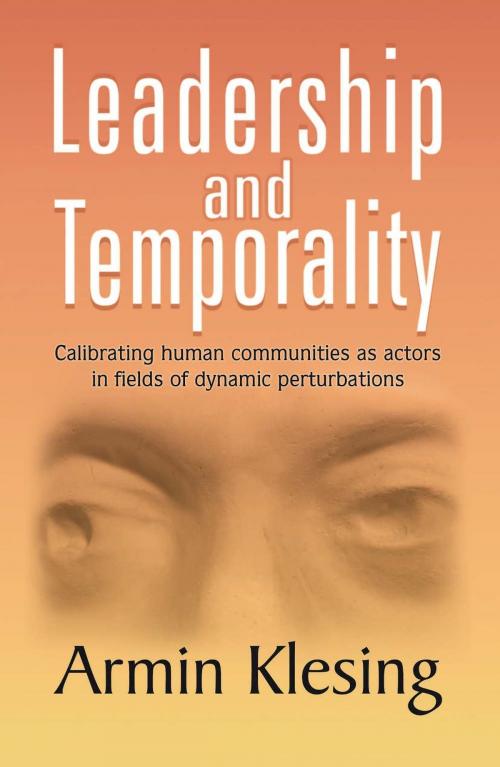Leadership and Temporality
Calibrating human communities as actors in fields of dynamic perturbations
Nonfiction, Religion & Spirituality, Philosophy, Free Will & Determinism, Business & Finance, Management & Leadership, Leadership| Author: | Armin Klesing | ISBN: | 9781681815077 |
| Publisher: | Strategic Book Publishing & Rights Co. | Publication: | December 23, 2015 |
| Imprint: | Strategic Book Publishing & Rights Co. | Language: | English |
| Author: | Armin Klesing |
| ISBN: | 9781681815077 |
| Publisher: | Strategic Book Publishing & Rights Co. |
| Publication: | December 23, 2015 |
| Imprint: | Strategic Book Publishing & Rights Co. |
| Language: | English |
The objective of this book is to introduce a new theory of leadership. Traditionally, leadership is understood as the ability of charismatic personalities to create a following and to achieve significant results against great odds. This study takes a different point of departure.Author Armin Klesing asks two questions: How can the response behavior to events be calibrated through the right persons, and what does it take to actively create a new budget? This leads to the elegant concept of “temporality of leadership,” which describes the proper calibration of societies, cultures, states, businesses, armies, and whatever else lends itself to be described as a time-dependent chain process in fields of dynamic perturbations.The author blends philosophy, self-development, history, current affairs, and business building to describe the potential implications of this novel approach.
The objective of this book is to introduce a new theory of leadership. Traditionally, leadership is understood as the ability of charismatic personalities to create a following and to achieve significant results against great odds. This study takes a different point of departure.Author Armin Klesing asks two questions: How can the response behavior to events be calibrated through the right persons, and what does it take to actively create a new budget? This leads to the elegant concept of “temporality of leadership,” which describes the proper calibration of societies, cultures, states, businesses, armies, and whatever else lends itself to be described as a time-dependent chain process in fields of dynamic perturbations.The author blends philosophy, self-development, history, current affairs, and business building to describe the potential implications of this novel approach.















